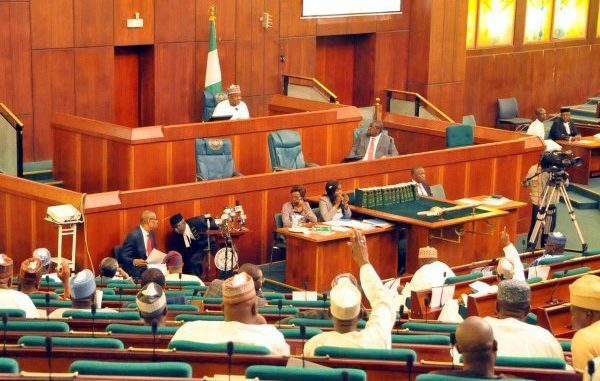
A state constituency election to fill a vacant seat in the Rivers State House of Assembly on August 18 was aborted due to a riot of gunshots by suspected thugs, snatching of ballot boxes and other acts of criminality unbecoming of a democratic contest. The Independent National Electoral Commission that organised the poll has not yet given a new date for a rescheduled conduct. It is alarming that this happened despite the heavy security presence in the area. A total of 1,500 security personnel comprising the police and other services were there to guarantee peace and security.
Not many observers would be surprised at this turn of events. The state has since the Fourth Republic been projecting itself seemingly as a political jungle, where thugs are bred, armed by politicians and used freely in maiming and killing of political opponents and winning elections. The recent parliamentary electoral debacle has provoked accusations and recriminations by the main political actors in the state. Governor Nyesom Wike blamed the All Progressives Congress – an opposition party in the state – for the mayhem. He alleged that the party used the police and other security agents to create havoc. But the APC demurs and throws back the blackmail to the state government, which it accused of recruiting thugs to do its dirty jobs.
Indeed, these developments bode ill for the 2019 elections. But the political maelstrom has thrived because the country has continued to treat subversion of the will of the people at the ballot with kid gloves. The European Union Observation Mission report on the April 2015 general election confirmed Rivers State as the unmistakable leader in electoral violence. It stated, “On 11 April election day, there were increased security incidents, with at least 30 people killed predominantly in Rivers and Akwa Ibom.”
INEC corroborated this in its interim report on the conduct of the governorship and state Assembly polls when it noted that the state had 16 incidents of violence, the highest among the 36 states of the federation. Elections could not hold in some wards and constituencies as a result of insecurity. During the rescheduled polls on March 19, 2016, the situation was not different either, forcing the commission to vow not to return to the state until peace supervened.
The state has been in a cauldron since then as sabre-rattling remains a way of life for the gladiators there. Last November, the security aides to Wike and those of the Minister of Transportation, Rotimi Amaechi, clashed at a junction in Port Harcourt. One of them (or both men) could have been killed, but for providence. In May this year, thugs of rival factions of APC invaded the premises of a court to stop it from giving a ruling on the party’s congress. For about 30 minutes, gunshots ricocheted, people ran helter-skelter and vehicles were vandalised. It is only in a state in anarchic overdrive that such felony will occur without consequences.
President Muhammadu Buhari, while inaugurating the INEC chairman, Mahmood Yakubu, had admonished him to ensure that electoral offenders were punished in order to bring sanity to the country’s electoral process. Not embracing this punitive step has created the fertile ground for the impunity to continue to flower.
It is curious why, within a space of two months, the Nigerian Customs Service intercepted two containers with military uniforms in the state. The first was on July 28, which involved 400 pairs of new sets of military camouflage, totalling 4,400 sets. This August, another container with 620 sets of military uniforms, 10,100 military T-shirts and 515 pairs of military jungle boots, were seized; in what seems to be materials for an illegal army in the making for the 2019 polls. Since the importer has been taken into custody by state operatives, the authorities should not waste much time in the investigation before subjecting him and his confederates to the due process of the law. That is the only way to send a strong message to other criminally minded persons that are yet to be nabbed.
Some soldiers in the course of duty have been killed in the state, policemen beheaded, and civilians routinely eliminated. Alkali Mohammed, a Deputy Superintendent, and his orderly were beheaded in Juju community near Ormolu in Rivers in December, 2016. It is for this reason that we faulted government’s policy of appeasement towards confessed cultists, hired assassins, kidnappers and robbers, numbering 2,000, granted amnesty in October 2016, after they surrendered 911 arms, including AK47 rifles, pump action guns and 7,369 rounds of ammunition.
That these miscreants are a creation of politicians was put beyond doubt, with the revelation of a former vice-president in a BBC Hausa Service interview in 2013. He claimed that some governors intimated him, while he was in office, of their plan to recruit thugs and arm them for the purpose of winning their elections, which he advised against. He underscored the point that after winning the election and they failed to provide jobs for them, they would rise against the people. These hardened criminals are always tools in the hands of their debauched political patrons during election period. This is the tragedy of Rivers State.
In developed societies, the ex-VP’s lead would have been acted on by law enforcement agencies. This is why official indolence on such criminality puts the conduct of violence-free and credible elections at the mercy of hoodlums, not only in Rivers, but in many states across the country.
END

Be the first to comment